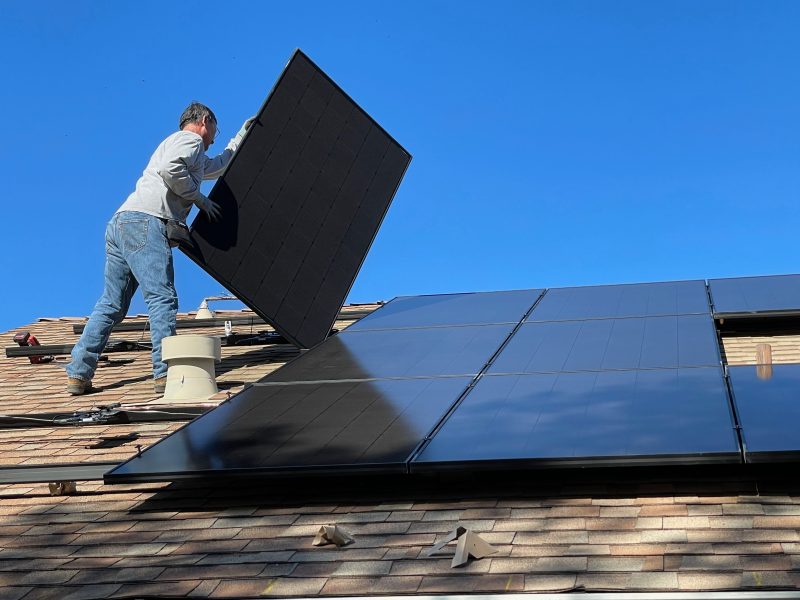Many of us think that becoming eco-friendly is a daunting and expensive task.
The truth is that transforming your house into an eco-home doesn’t need to include too much change. In fact, there are many sustainable solutions that you can adopt around your home that will reduce your carbon output so we can enjoy a healthier planet. Here, Karl Tulloch of Rightio has provided ways on how you can easily achieve an eco-home without breaking the bank.
Renewable energy sources
If you’re looking for ways to drastically adapt your home into a sustainable powerhouse, making use of renewable energy is the way forward.
An instantly recognisable mark of eco-living, solar panels are a great option for households looking to become eco-friendly. Relying on solar energy will cut your carbon emissions by a lot and is a fairly unobtrusive method of gaining renewable energy.
The downside, however, is that solar panels are a relatively expensive sustainable solution, costing around £6,000–£7,000 for an average-sized home. If you can afford the high initial investment, solar panels can start saving you money on your energy almost immediately, and it’s unlikely that they’ll need any costly maintenance in the future.
Heating
Ensuring the proper maintenance of your heating probably doesn’t seem like the most obvious route to sustainability. However, an efficient heating system is the very core of an eco-home.
No matter how much you might want to avoid putting the heating on, there are always times throughout the year when it’s simply too cold to keep the heating off – we all want to live comfortably in our homes. If your boiler is old or less efficient, then your bill will be higher than necessary, and you’ll be using more energy than required.
Combi boilers are both a cost-effective and energy-efficient choice of a boiler as they heat water on demand. To ensure that your boiler is working at maximum efficiency, make sure to check it with a combi boiler service. Regular checks will guarantee that your heating system is working as energy-efficiently as possible.
This is an incredibly simple change to make and barely requires any effort around the house. If you’re looking for a seamless technique to transform your home into a sustainable space, this is it.
Water conservation
Eco-living is the foundation of an eco-home. With this in mind, it’s important to remember that everyday decisions to be more sustainable can make a big impact. Vigilance is one of the best tools in your eco arsenal.
As humans, we need a lot of water to keep us going, but there are ways to minimise our usage. Thankfully, these are very simple changes to make. Dishwashers and washing machines use a lot of water at once, so make the most of that water and make sure that you’re filling them completely. That way, the same water will be used to go further.
For other simple changes, you might want to swap your shower head out for a water-efficient option, or you can limit the length of your showers. By shortening showers by one minute each day, you could save £8 a year on your energy bill, plus the environment will feel the benefit too.
Conserving water is one of the most accessible ways that you can act sustainably. You can make sustainable decisions every day to help the planet, and you’ll save yourself some cash in the process.
Eco from the start
We’ve looked at both short- and long-term ways to turn your home into an eco-home, but some people may want to go a step further. To make the ultimate commitment to eco-living, you might decide to build your own home from scratch and make use of sustainable building techniques and materials.
When building an eco-home, making use of local materials will immediately reduce the carbon impact of the construction process by eliminating long-haul transportation costs. Additionally, making use of recycled materials is a great option. For example, choose cellulose insulation, which is a non-toxic and mostly recycled material, for your walls. This choice, paired with a boiler that has been checked for efficiency, will make sure that the energy used to heat your home is working as well as it possibly can.
The evolution of your home into an eco-home doesn’t have to be a dramatic change. Whether you choose to make more sustainable decisions every day or prefer to build an eco-space that suits your needs, having an eco-home can be a reality for many. We hope these suggestions will inspire you to craft the perfect sustainable home for you.










